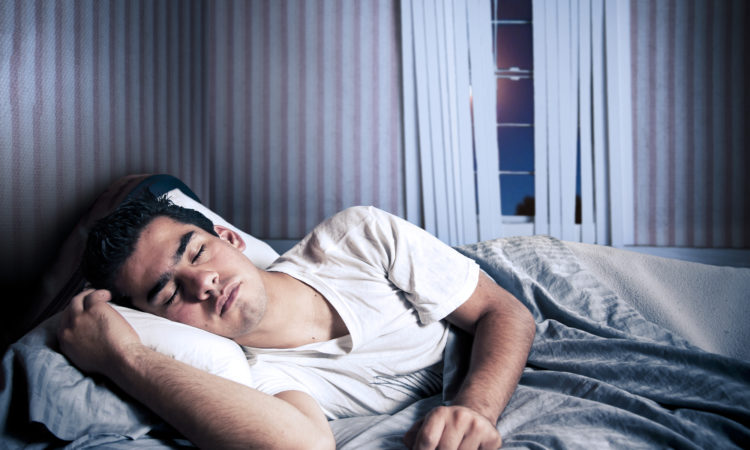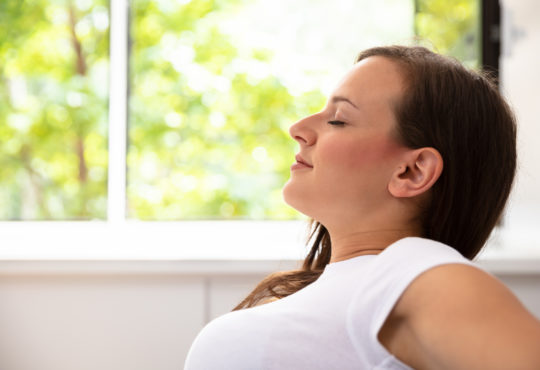
Science journalist James Nestor and a friend performed an interesting experiment on their noses.
They even paid Stanford University to help them by conducting the medical tests.
They plugged up their noses with silicon – then spent ten days breathing entirely through their mouths.
They didn’t expect that time to be pleasant, but they were unprepared for how quickly their health and emotional states went downhill – and how far.
It took only two hours for Nestor’s blood pressure to rise to a critical level.
Within a few days, he was snoring four hours every night.
He developed sleep apnea. His partner, a Swedish sleep therapist, developed even worse apnea.
At the end of the ten days, the silicon was removed from their noses. They returned to breathing through their noses – and their health immediately began to improve. The snoring and sleep apnea virtually disappeared.
The Many Dangers of Mouth Breathing
When we inhale through our mouths, we’re exposing our lungs to air that’s unconditioned and unfiltered. You’re taking in whatever viruses may be in that air. Not only can it cause respiratory problems, but it can also cause neurological problems.
What’s worse, daytime mouth breathing carries over into sleep. This causes snoring and sleeps apnea.
Sleep Apnea is a Growing and Serious Health Problem
Apnea is when you wake up because your breathing is obstructed. This can happen many times during the night, without you even remembering it.
This waking up over and over again obviously interrupts your natural sleep cycle. It’s hard for your body to fully repair the day’s damage during deep sleep – when your mouth breathing keeps waking you up out of that deep sleep.
In the short run, therefore, apnea tires you out because you’re not getting a full night’s rest. It makes you feel irritable, unable to concentrate. It can give you morning headaches. If your mouth is dry when you wake up or your partner complains about your snoring, you probably have sleep apnea.
In the long run, sleep apnea is directly linked to Alzheimer’s, diabetes, neurological disorders, heart disease, and cancer.
Experts estimate 22 million Americans suffer from sleep apnea – 80% of them undiagnosed.
About 3% of people with normal weight have sleep apnea, but 20% of the obese. Therefore, if you’re overweight, losing weight is a major tool to prevent or stop sleep apnea.
Because sleep apnea does prevent your body from fully recovering from the stress of every day, it prevents optimal health. It also keeps your body from making sufficient quantities of important hormones, including estrogen and testosterone.
Studies show reducing or eliminating sleep apnea significantly increases levels of testosterone in men and estrogen in women.
When Mouth Breathing is Allowed
1. When you’re talking.
2. When you’re eating.
3. When you’re exercising INTENSELY: all-out sprinting. That is if you’re just walking, running, or cycling at low to the medium effort, breathe through your nose.
This will be difficult at first because you’ve allowed exercise to be permission for unhealthy breathing. but keeping your mouth closed while you exert effort will widen your nasal passages, making nasal breathing easier even when you’re not exercising.
And once you adjust, your exercise performance and endurance will probably improve.
The rest of the time, breathe through your nose. If you’re a chronic mouth breather, this may take time to become a habit, but it’s one of the best things to do for your health, energy, and longevity.
Chronic mouth breathing overtime shifts the actual structure of your jaw and face, making you less attractive.
What Does Nasal Breathing Do?
It enables a more effective and efficient balancing of gas exchange. Breathing through your nose brings in more oxygen and gets rid of more carbon dioxide.
That helps lower apnea. When you’re experiencing sleep apnea, that leads to a buildup of carbon dioxide.
That increases cortisol, the stress hormone.
How to Deal With Apnea
If your apnea is severe, you may need a CPAP machine. For that, you must consult a medical professional.
If you’re not that severe, force yourself to breathe through your nose during the night by taping your mouth shut.
Some people online take this way too far. You don’t need to tape every square centimeter of your mouth area.
Just get hypoallergenic skincare tape from your Medicine store. I use 3M Transpore. Cut off a strip about an inch or so long. Place one end just above your upper lip and the other just below your lower lip.
Simple.
Can You Hum a Few Bars of That?
One amazing benefit of nose breathing is you’re taking advantage of the nitric oxide (NO) the cells of your sinuses release. NO kills bacteria and viruses in the air you inhale through your nose – but not through your mouth.
Therefore, NO protects you from airborne infections.
NO also relaxes both your nasal passages and your blood vessels.
Therefore, NO lowers blood pressure.
And relaxed nasal passages make breathing through your nose that much easier.
The fastest way to increase NO so you feel at ease breathing through your nose (during the day and night)?
Hum.
The Karolinska Institute in Sweden found humming increases airflow in your sinuses.
And it raises the NO in your sinuses by 15-20X over simple exhalation.
Hum 5-10 minutes at a time, two to four times per day, especially if your sinuses are blocked or your blood pressure is high – or you may have been exposed to an infection.
Hum any time you find it difficult to breath through your nose, such as after you tape your mouth shut at bedtime.
The humming is relaxing as well, so it will help you fall asleep.
Then you experience the wonderful, uninterrupted deep sleep that restores all your cells to maximum health.
https://openarchive.ki.se/xmlui/bitstream/handle/10616/38896/thesis.pdf?sequence=1
https://www.buteykobreathing.nz/blog/potential-immune-protective-effects-nitric-oxide-and-humming
https://www.youtube.com/watch?v=H1s48KwOrXA
https://www.youtube.com/watch?v=MJ3JeP2ooWI
https://www.mayoclinic.org/diseases-conditions/sleep-apnea/symptoms-causes/syc-20377631
https://www.youtube.com/watch?v=Xu1FMCxoEFc&t=756s
https://www.youtube.com/watch?v=gbQFSMayJxk
https://www.youtube.com/watch?v=nm1TxQj9IsQ&t=3s
https://www.youtube.com/watch?v=nwSkFq4tyC0&t=981s
https://www.youtube.com/watch?v=NAATB55oxeQ
https://www.youtube.com/watch?v=bEbtf7uS6P8&t=7918s
https://www.amazon.com/Why-We-Sleep-Matthew-Walker-audiobook/dp/B0752XRB5F/
https://www.hopkinsmedicine.org/health/wellness-and-prevention/the-dangers-of-uncontrolled-sleep-apnea







